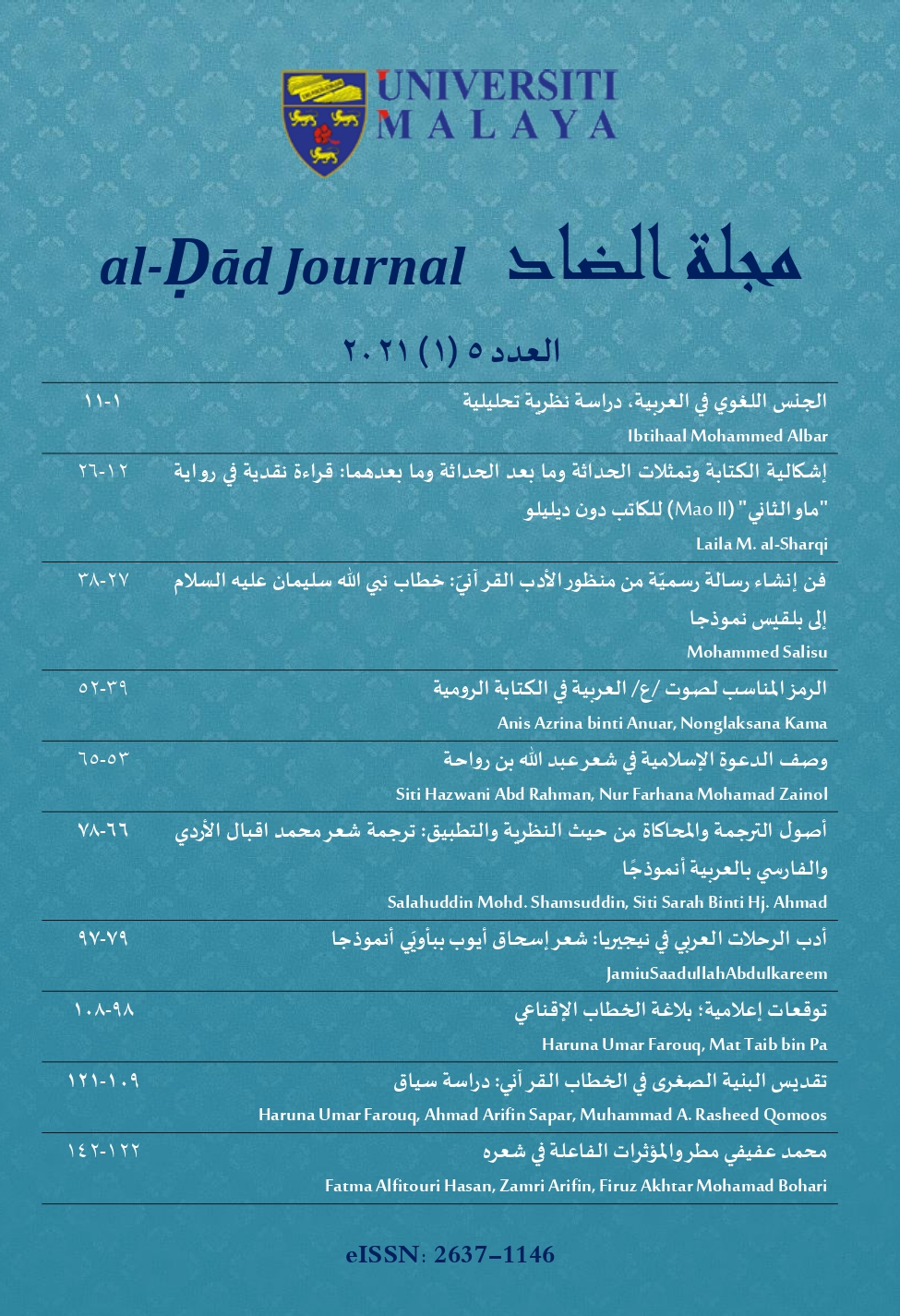Origins of translation and simulation in terms of theory and practice: Translation of Muhammad Iqbal's Urdu and Persian poetry in Arabic as a model Translation
Main Article Content
Abstract
Translation has a great importance in the development of human sciences in every age. First, we examine the theories of writers and critics mentioned in the translation and simulation. Translator must know the function of the symbolic language that differs from the metaphors and similes. Translation is the best way to enrich the languages in which the literatures are formulated, which must be in constant contact with what human thought offers, and the writer or translator must take a position of criticism and scrutiny. The translator must not forget that he does not convey the meanings of words only, but also conveys the cultural spirit and emotional life of the era in which these texts were composed. Finally, this article studies the subject of translating the poetry by the poetry and makes the translation of Muhammad Iqbal's poetry from Urdu and Persian into Arabic as a model for studying the translated works of various Arab poet translators as the theory and application, in order to know the extent of the success of the translators in their works. This is a critical study in which the descriptive analytical method is used, which is useful in studying such expressive arts. In this research, the researchers reached this conclusion that the translation of the poetry by the poetry should not be to show the linguistic and artistic prowess, but rather the language used in translation should be a realistic language studies that there are some souls behind the word that must be realized.
